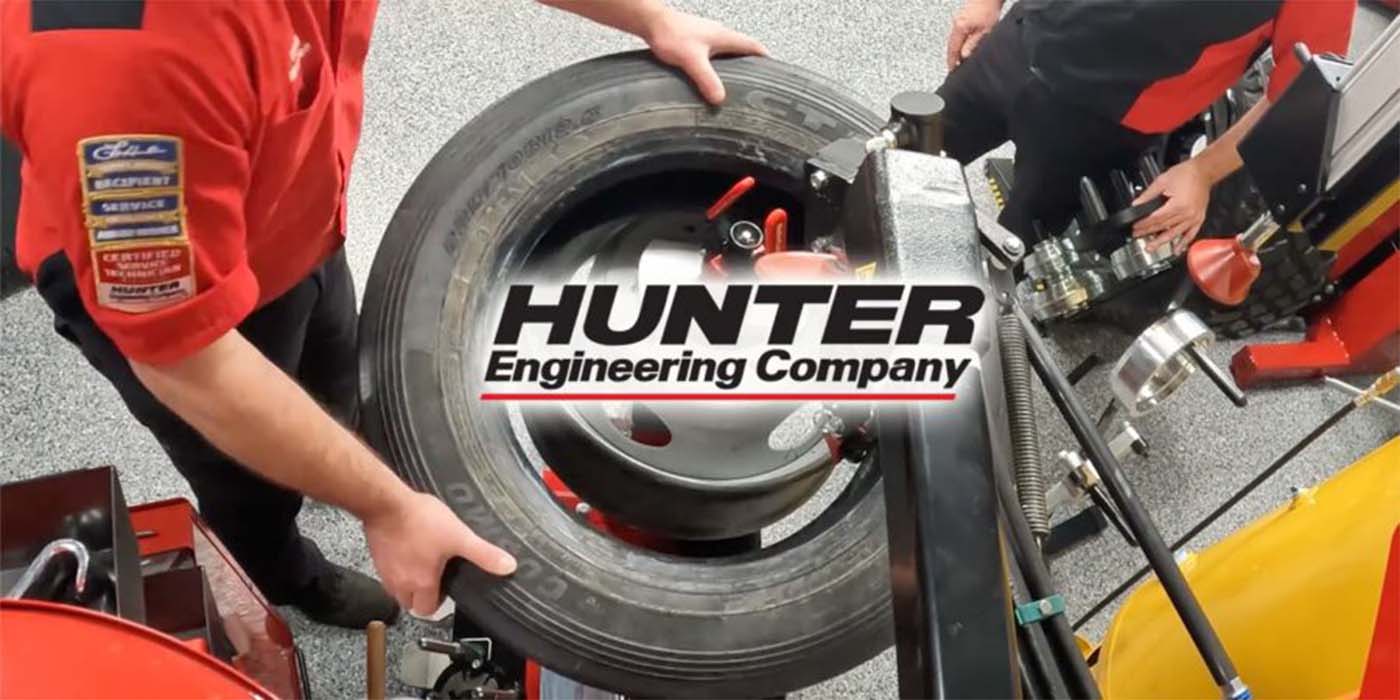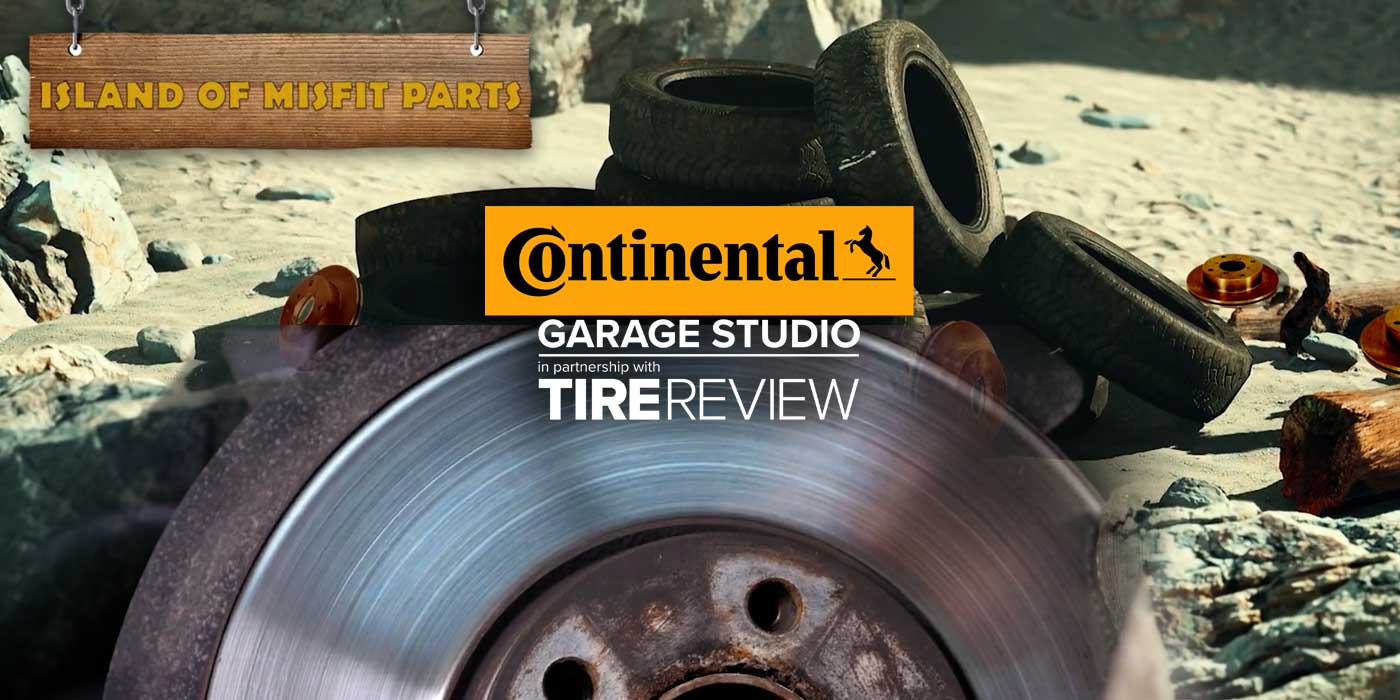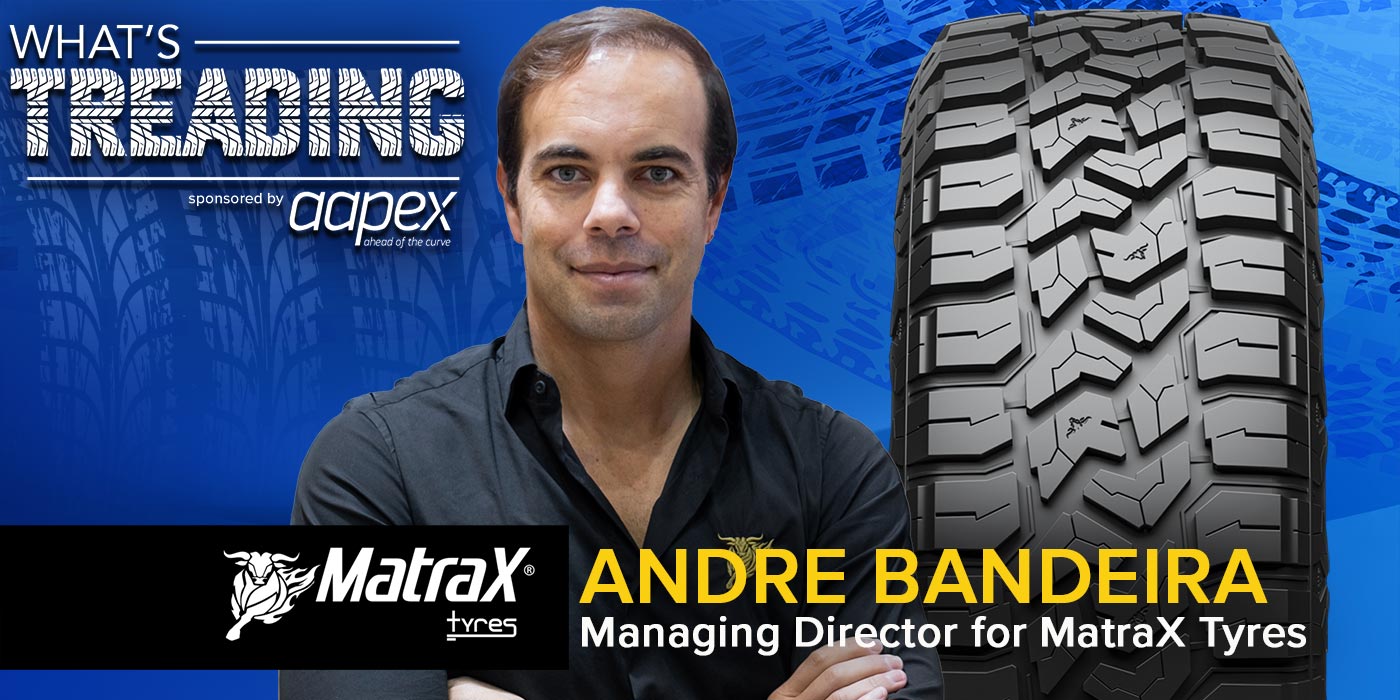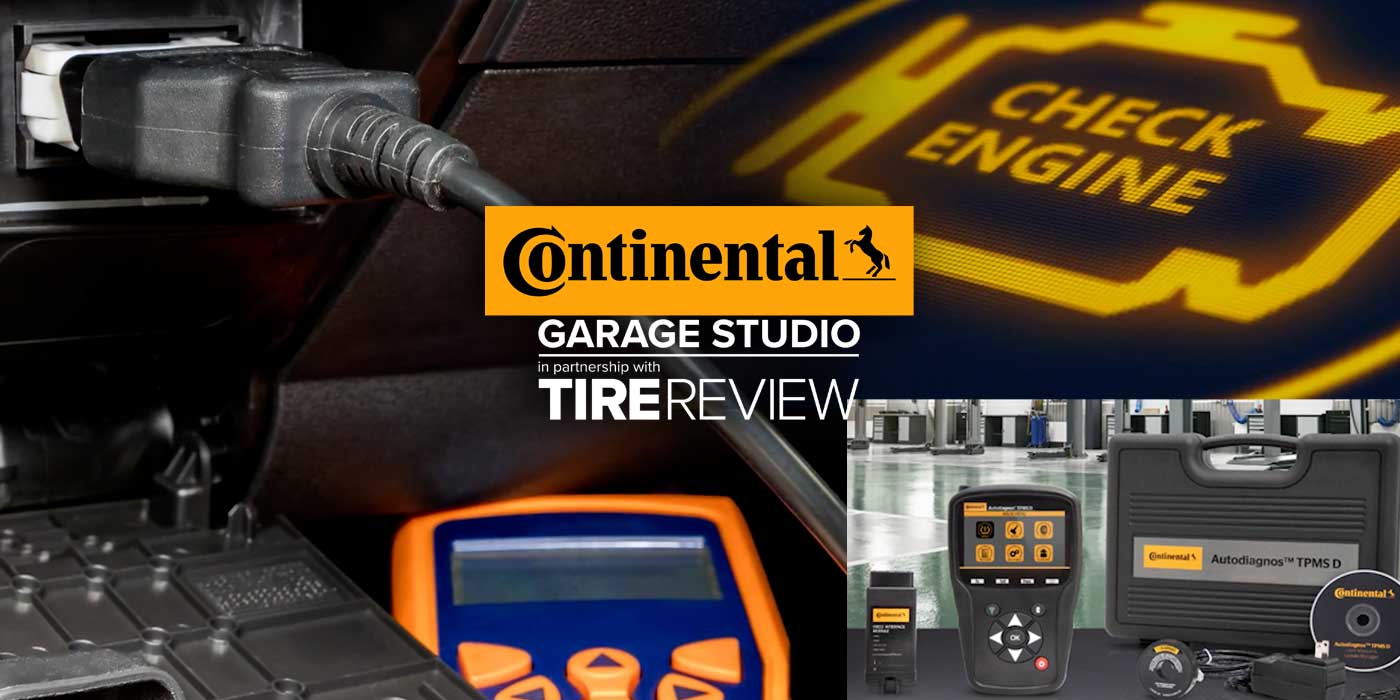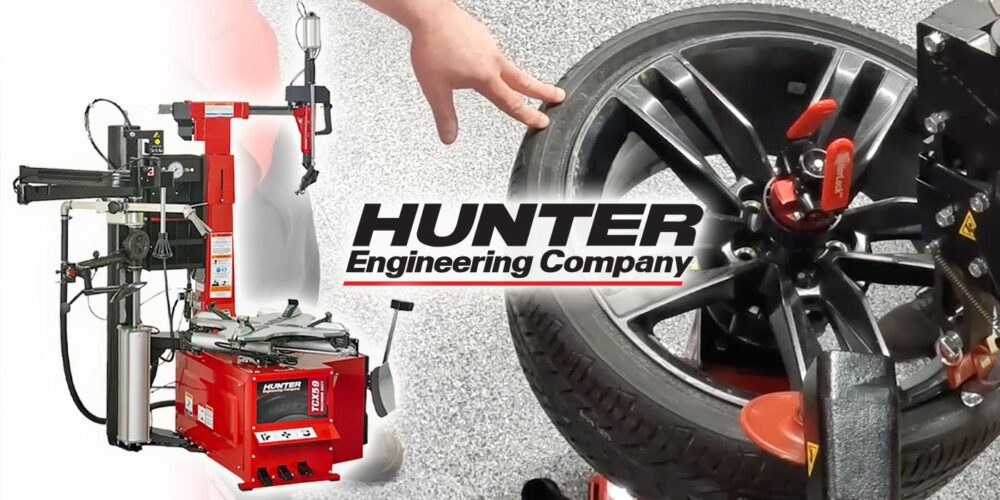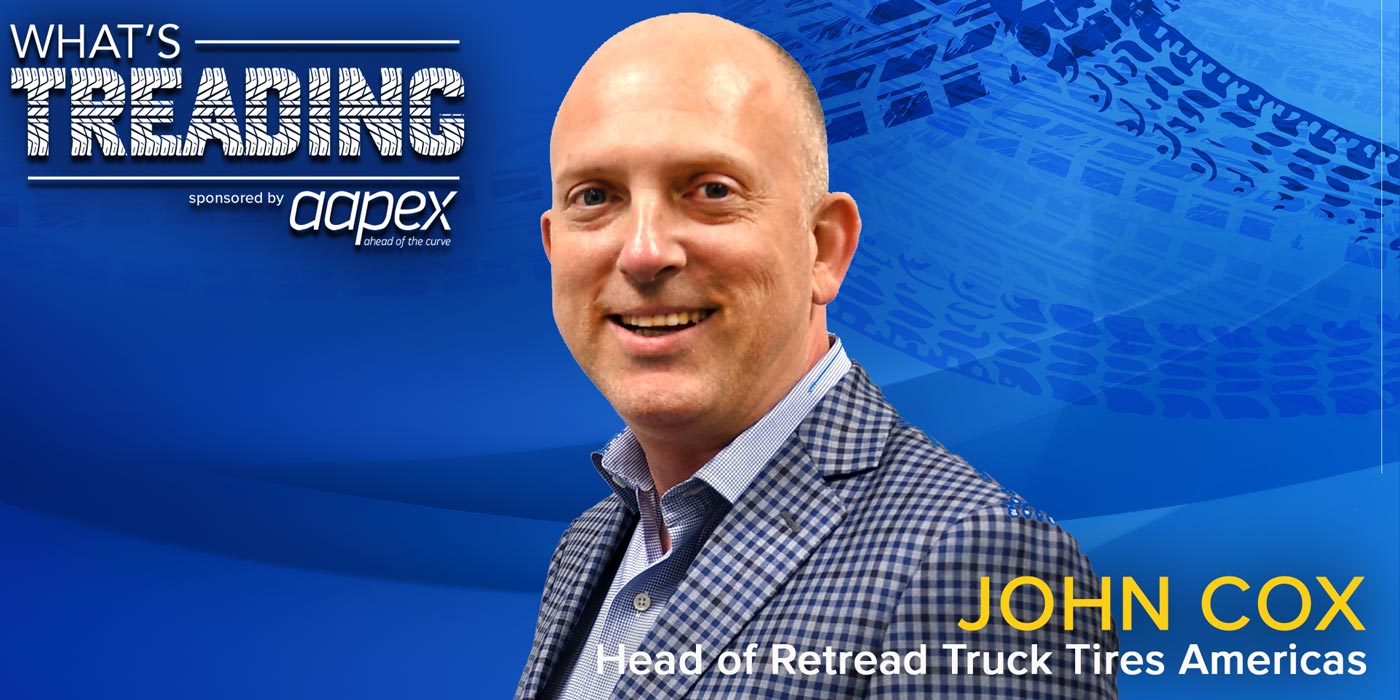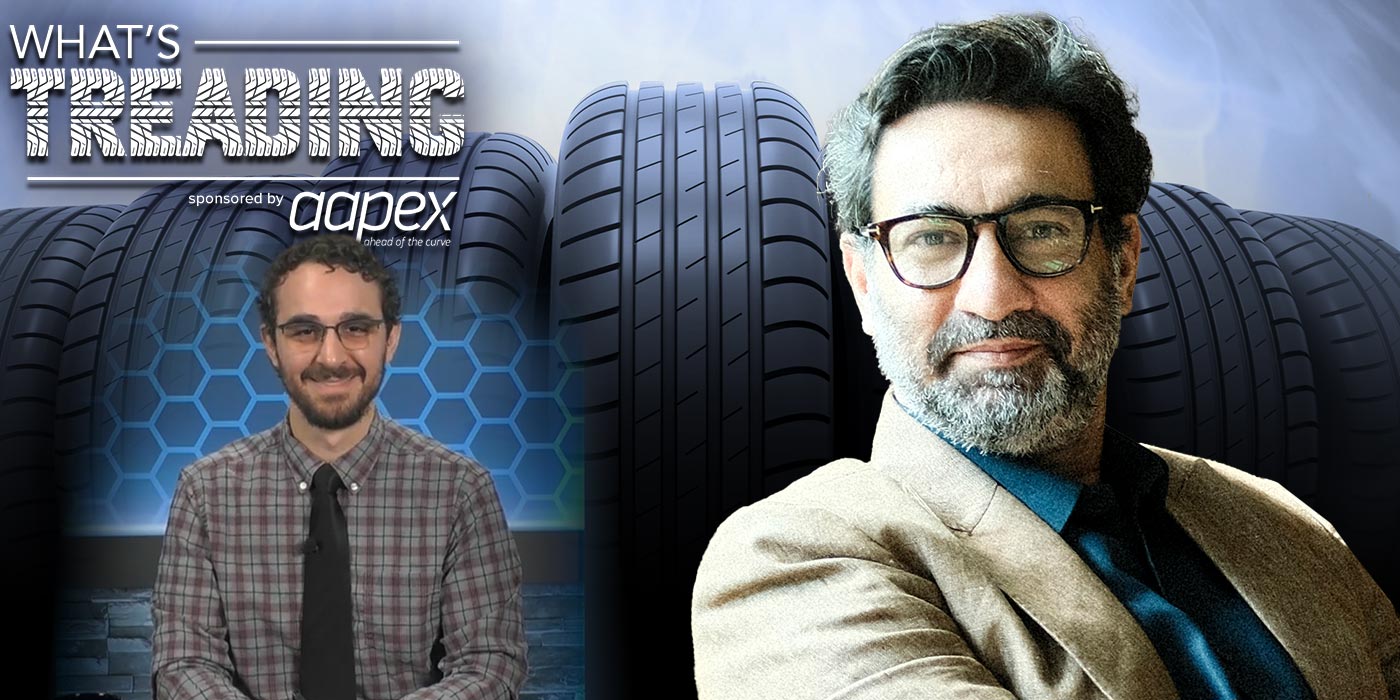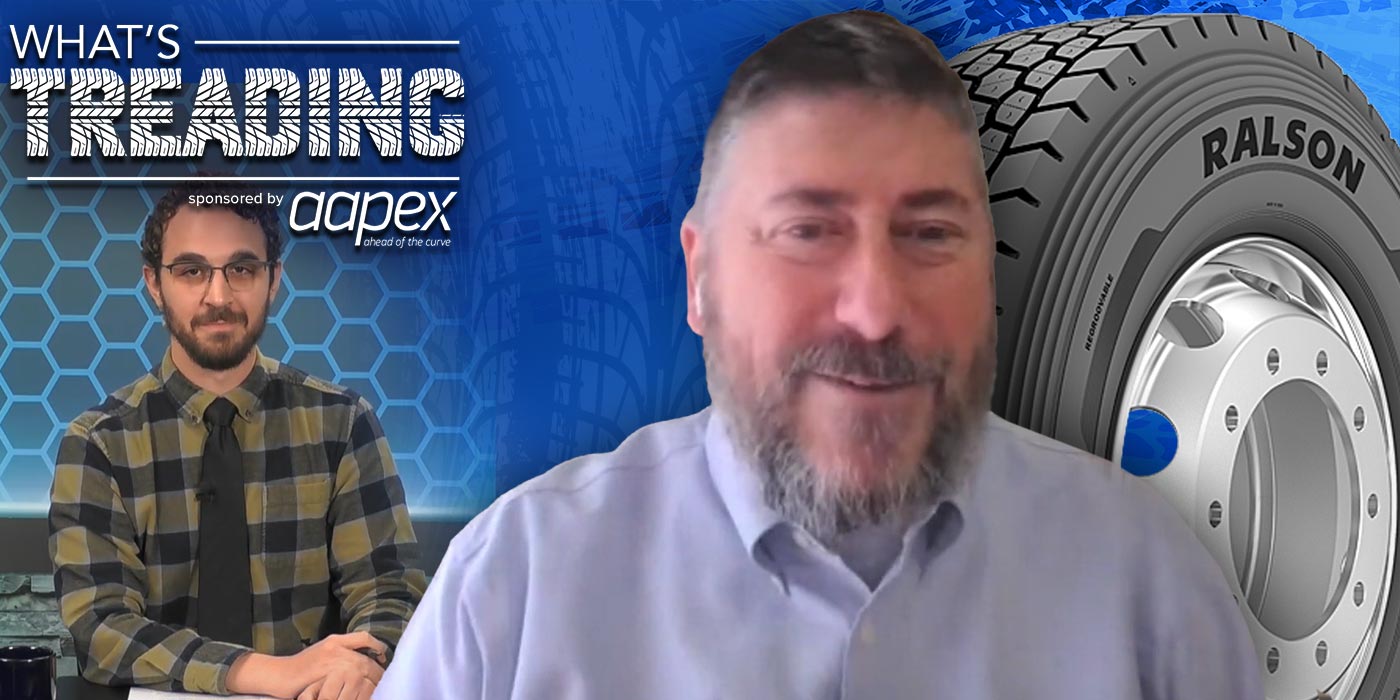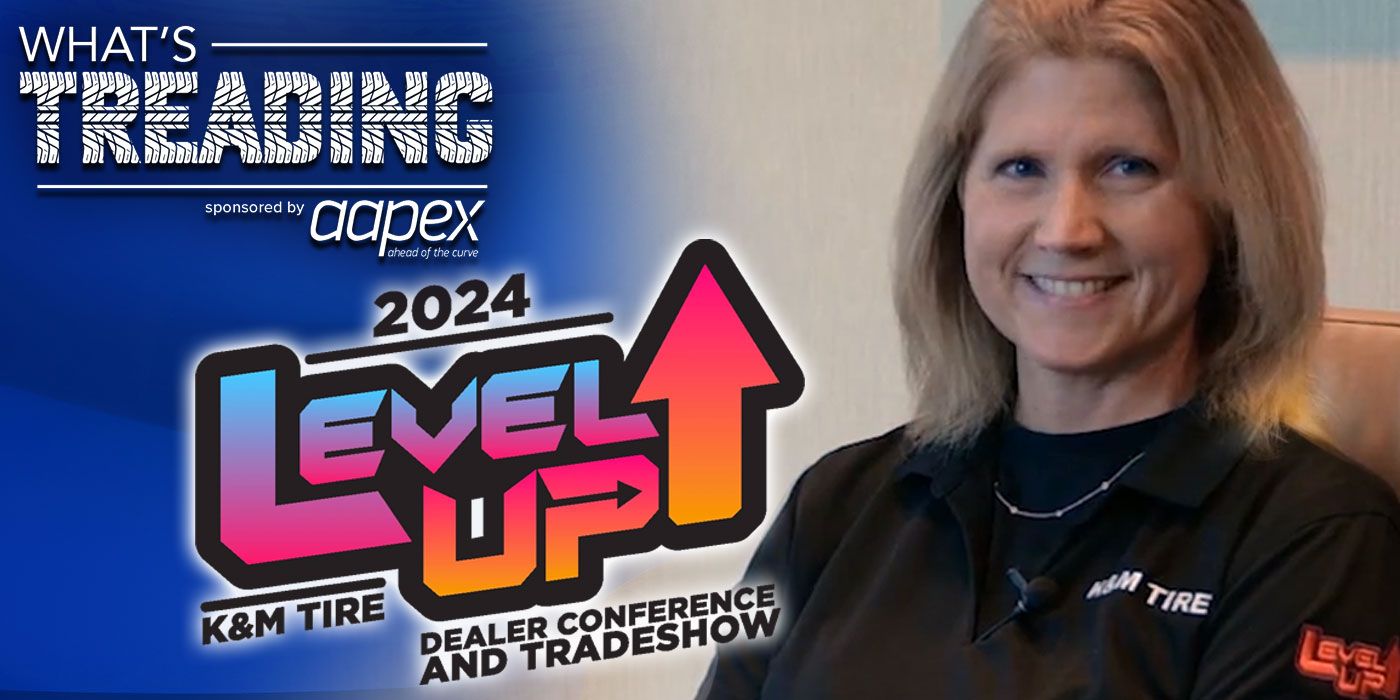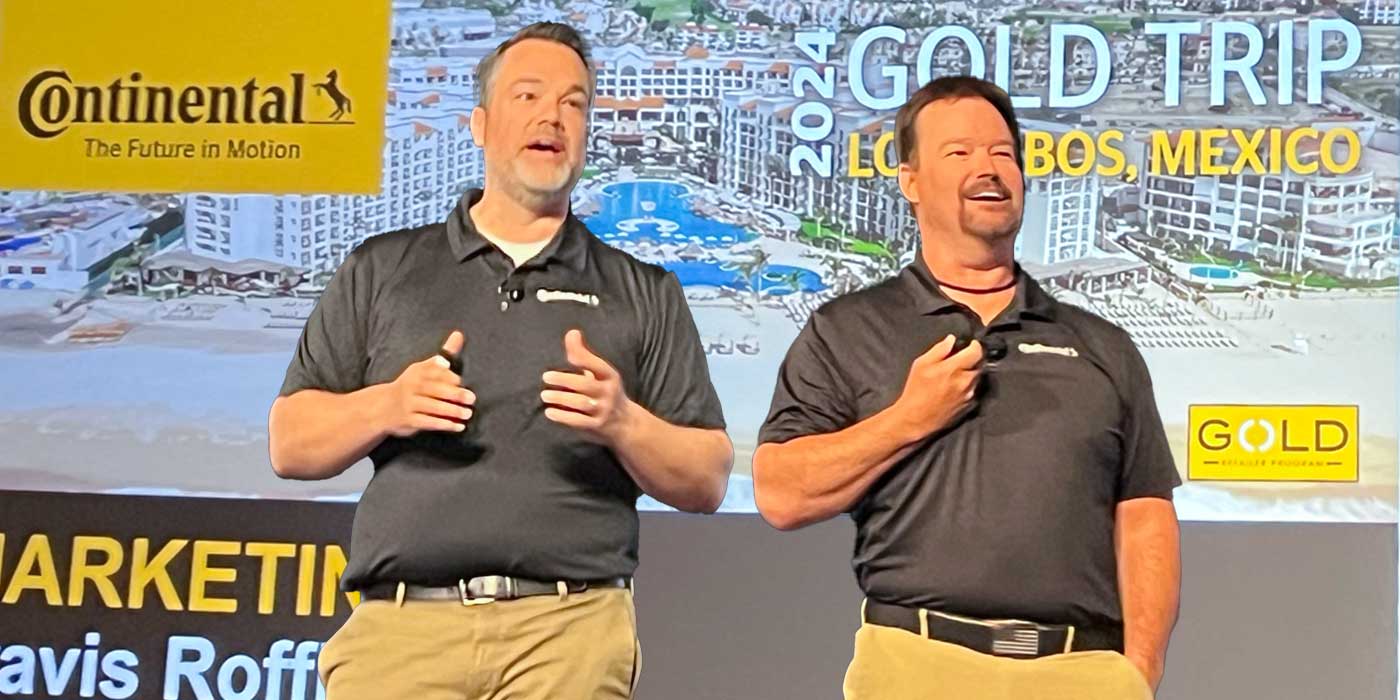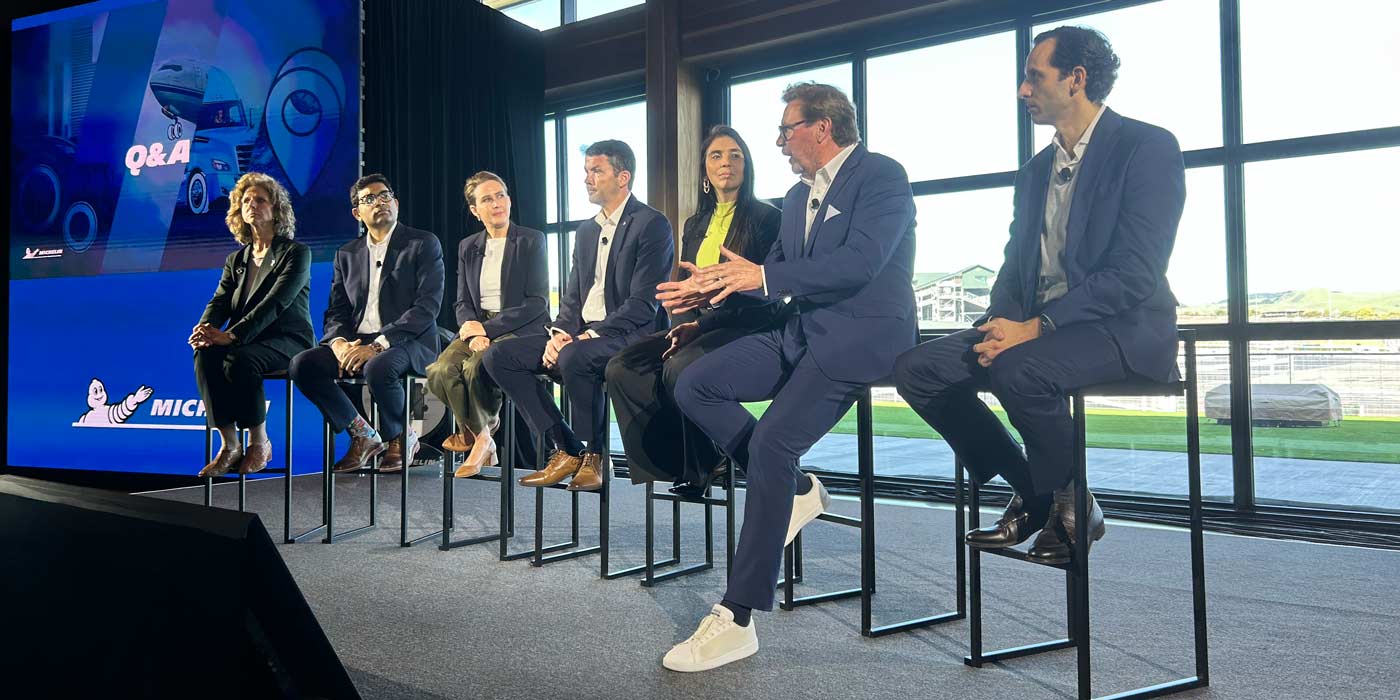When we talk about the hot-button issues in the industry, we can’t have a conversation without mentioning right to repair. Right now, the fight is over having access to a vehicle’s telematics data, and industry organizations are fighting for this right both at a federal and state level in the US.
One tire business that is deep into the right-to-repair battle in Maine is VIP Tires & Service, which has played a crucial role in securing a ballot referendum around the issue for the upcoming November election cycle. In this episode of What’s Treading with Tire Review, presented by AAPEX, we’re joined by Tim Winkeler, president and CEO of VIP Tires & Service, to learn how his team is leading the effort to educate consumers about right-to-repair in Maine and why this issue should be top-of-mind for auto repair shops across the country.
EPISODE OVERVIEW
- How the right to repair initiative started in Maine and next steps to take before November elections (1:19)
- The ways VIP Tires & Service and other aftermarket professionals in Maine are looking to educate consumers about right to repair (2:53)
- The history behind VIP Tires & Service’s involvement in right to repair both nationally and locally (5:02)
- A Tesla example from the VIP Tires & Service bays that demonstrates the necessity of access to a vehicle’s telematics data (7:22)
- Why right to repair is important to the accessibility of the automotive industry (10:08)
- How tire dealers can emphasize to the customer their right to access their vehicle’s data and what it means for their vehicle care (12:00)
Subscribe to the audio podcast on Apple Podcasts, Spotify and Google Podcasts. You can also read the full interview below.
Maddie Winer, Editor, Tire Review: Tim, I’m excited to talk with you today about the right-to-repair initiative happening in Maine. I know you and your team at VIP Tires & Service are really leading this initiative. To back up and give our listeners and viewers some history around this: In August last year, the initiative to get a right-to-repair ballot referendum in Maine. You all secured the needed support from the Maine Secretary of State, and then the next step was to gather signatures of registered voters that support this. You all did that. So, from here, what are the next steps to get this ballot referendum passed?
Tim Winkeler, president and CEO, VIP Tires & Service: Yeah, let me take those data points and fill in the rest of the story. We got approved in late October to go collect signatures. We had to collect a minimum of about 65,000 signatures across the state. Within three weeks, we collected 75,000 signatures. We had 90 days to do it, and it took us 21 days. There were signature collectors at all the auto parts stores, all the repair shops like VIP and other repair shops. We also went to polling locations during the elections in November.
So, we collected over 75,000 signatures. Those were all presented to the Secretary of State in Maine, and we just, within the last couple weeks, received word that the signatures are valid, they’ve certified them, and so this initiative, right to repair, is going to be on the ballot in Maine for November 2023.
Winer: That’s very exciting. I know this follows other initiatives in Massachusetts, which we’ll talk about later, and there’s a new one in Maryland as well. But I’m curious, you mentioned getting those signatures, so as part of Maine’s Right to Repair Coalition, what measures are being taken from now through election time in November to make sure voters know about this issue?
Winkeler: For the next several months, we’ve got these large Maine Right to Repair posters with a QR code and and a website on them. Those are up in every VIP location. They’re up in every NAPA, O’Reilly, Advance, AutoZone—all the big parts manufacturers and companies as well as the retailers that are supporting this and repairers like VIP. Right now, it’s more passive in terms of making people aware of seeing these signs and that there is a right-to-repair initiative that’s going to be on the ballot. Myself and a few others have made some media appearances on either different podcasts or state-level organizations that we’re members of where we’re spreading the word. There’s a grassroots organization we work with also.
There’s a whole plan come late summer, early fall, obviously when the real awareness campaign will begin, and that’s when we will start to do a lot more activities around making sure voters are aware of what this issue is. I don’t even know yet if we know what question it’s going to be. When it comes down to explaining things for voters, you got to keep things simple, and you got to make sure that they know what question it is and which way to vote on that question. There are some of those details that as those get firmed up and as we understand what those will be, that’ll start to help form how we create public awareness.
Winer: That makes sense, and the wording of those questions is very important as well. Now, Tim, I know none of this happens in a bubble. Obviously, VIP Tires & Service is really leading this effort in Maine, but you all have been working with the Auto Care Association on this as well. Can you give me some history around that?
Winkeler: Sure. The Auto Care Association is our umbrella organization that pretty much every company that’s involved in the aftermarket is a member of, and VIP’s been an active member. Our owner [John Quirk] was on the board years ago for the Auto Care Association, actually back when it was the AAIA (Auto Aftermarket Industry Association). Their leadership on this issue of Right to Repair goes back over 10 years, and they were the ones who helped get this originally on the Massachusetts state ballot in 2013 or 2012. The industry was able to hammer out a memorandum of understanding originally on right to repair with the car manufacturers. Unfortunately, the wireless data—what we call telematics data in the industry—was carved out of that agreement. That’s really the reason for this second battle, if you will, around right to repair is because now we have to make sure that with these new cars that are coming off the factory lines with all the wireless data that they produce, that repairers have access to the data that is required for diagnostic work and for repairing these vehicles.
Winer: Right. And there are multiple right-to-repair initiatives out there right now—not only the one you’re working on in Maine, but I know the Massachusetts one that’s been in court, the Attorney General came out and said they’ll be enforcing that law June 1st. What that looks like is yet to be seen. Then there’s Federal REPAIR Act as well, so there’s a lot of things going on with this issue. But Tim, I’m curious, could give me an example of a shop situation in which telematics data would need to be used to repair a vehicle? Maybe an example of one that your locations have experienced something like that?
Winkeler: Yeah, the easiest one to cite today is a lot of the dash lights for what they call MILs on a Tesla. Some of those Teslas, you can’t plug a traditional scan tool into an OBD-II port and read the failure codes. My son works at one of our shops here in Maine, and they had a Tesla come in recently with 1,500 miles on it and the traction control dash light was on. [The customer] came in to get an annual state inspection sticker, and we can’t pass a vehicle if it’s got an error code on the dash. That traction light had to be accessed by a wireless transmission to get to that error code and in order to determine if it was a failed sensor. Or, is this a sensor that needs to be reset? Is this a software update? There are all these things that are built into these newer cars today, and that all is not done through the OBD-II port.
If you think about a technician’s work for the last 15 years in diagnostics, much of it is done with a scan tool that plugs into the OBD-II port. Well, when you plug the scan tool into the OBD-II port, you can’t get the information you need because today much of that information is housed in other places or is transmitted wirelessly. That’s just one example, but there are other examples from other manufacturers as well. Really, this comes down to if you spend time in one of our shops and these newer cars coming in, as those newer cars start having these diagnostic issues, that’s where our hands are tied because we can’t help the customer. We have to tell the customer, in this case, my son’s customer, that guy with 1,500 miles on his car had to drive from Maine back down to Boston to a Tesla dealership to get that diagnosed and to get that light turned off so he could come back up to Maine to get his inspection sticker.
Winer: Oh, wow! So not only is it a headache for the consumer, but it’s also a headache for dealers like you guys who are trying to service vehicles and serve your customers in the way you’ve always known how to do, yet you can’t because of the way the vehicle’s been wired or produced essentially.
Winkeler: That’s exactly right. I’ve made it a point to talk about the fact that this isn’t just for repairers like ourselves. This is for consumers.
The history of the automobile industry starts with the customer buying a car and fixing their own car. The DIY, the do-it-yourself industry, is very healthy, and it’s billions and billions of dollars. There are many people who work on their own cars and they’ve got their own scan tools at home and they want to be able to do their own repairs.
So, if they buy a new car today, they should have full expectation that as that car starts to have issues and failure codes, that the owner of the vehicle itself should be able to go out and buy a tool or have access to a platform that allows them to get to this data to repair their vehicle, just like the car manufacturers and their dealership network should have that access, independent repairers like VIP should have that access as well.
Winer: Right. Going off of that, you mentioned as the ramp up to this November election cycle and the ballot referendum for a Right to Repair in Maine, you guys will be spreading the word through different signs around town and different things in the VIP locations in Maine. If a customer comes up and talks to a service advisor or store manager, are there, and this is for other tire dealers too, not just you guys necessarily, but are there points that you would say other tire dealers should be making to their customers if they ask about, “Hey, what is this about? Will it really affect me?” What can someone say to a consumer that’s interested in this topic and really hit home the importance of it?
Winkeler: We’ve tried to communicate with our managers and all of our associates and share a lot of information at meetings, conferences, and send out messages through email. Ultimately, the bullet points [relate to] consumer choice. The Auto Care Association, when they originally initiated this, their slogan was, “Your car, your data.” You own the car, you should be able to determine where that data goes. Those are the bullet points: consumers should have the choice to take it to a dealer, take it to an independent repair shop, or work on it themselves. That’s what consumers should be able to choose when it comes to their vehicles.
At the heart of that is that the data that the car produces should be able to be directed by that consumer or accessed by that consumer. In the state of Maine, for instance, this citizens’ initiative and the bill that we’re hoping to become law, it entails that we work together to create a standard access platform for that online data, so that a repairer should be able to access, or a consumer should be able to provide access to that data to their repairer of choice.

